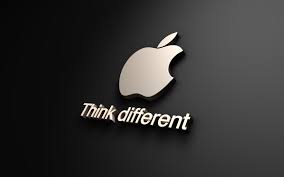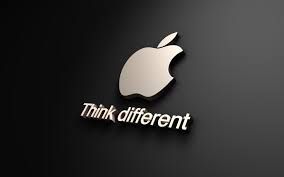
Its cheapest bonds in many years was issued by Apple Inc on Monday as the tech giant took advantage of the emergency measures taken by the United States Federal Reserve as a response to the economic impact of the coronavirus pandemic outbreak.
Apple is the latest blue-chip company to issue such cheap bonds to raise money for share buybacks and for giving out dividends.
This move by Apple shows how companies that have very high credit ratings are able to boost returns to shareholders by taking advantage of cheap debt that has been made available through the Fed's backstopping of the credit markets. There has virtually been no movement in Apple stock price in the current year to date even while there was a 12 per cent fall in the wider S&P 500 Index.
Issuance of four different bonds with maturities ranging from three years to 30 years helped Apple to raise as much as $8.5 billion from the market. The company sold a $2 billion three-year bond and a five-year $2.25 billion with coupons of 0.75per cent and 1.125 per cent respectively. According to Refinitiv IFR data, those returns were the cheapest that the company has paid on bonds with those particular durations since 2013.
According to the Refinitiv data, the coupons on Apple's 10-year and 30-year bonds were also the lowest that the company has paid in the past years.
Apple said in a regulatory filing that the money this raised by the tech giant will be expended for general corporate purposes which will include repurchasing of shares and payment of dividends to shareholders. Approximately $38.5 billion has been spent by Apple to repurchase its own stock during the six months ended March 28.
In March, interest rates were slashed to zero by the Fed while saying that it would act as buyer of last resort in the investment-grade corporate bond market. This was a measure that the central bank has taken to help cash-strapped companies to gain access to the capital markets that have been hit hard by the economic impact of the novel coronavirus pandemic.
The intervention in the market by the Fed has resulted in record issuance of bonds by companies that are currently in desperate need of funding, and includes names such as Boeing Co, Marriott International Inc and Ford Motor Co, even though the Fed itself has till now not made purchase of a single corporate bond issued since its announcement of the measure.
The latest policy by the Fed has also created scope for those financially strong companies such as Apple, which possessed a little over $40 billion in cash as of the end of March, to bring down its cost of capital to provide benefits to its shareholders.
New bonds at low rates have also been sold by drug maker Biogen Inc and U.S. health insurer Anthem Inc in the past week, the money from which will be used for buying back shares, the companies said.
(Source:www.channelnewsasia.com)
Apple is the latest blue-chip company to issue such cheap bonds to raise money for share buybacks and for giving out dividends.
This move by Apple shows how companies that have very high credit ratings are able to boost returns to shareholders by taking advantage of cheap debt that has been made available through the Fed's backstopping of the credit markets. There has virtually been no movement in Apple stock price in the current year to date even while there was a 12 per cent fall in the wider S&P 500 Index.
Issuance of four different bonds with maturities ranging from three years to 30 years helped Apple to raise as much as $8.5 billion from the market. The company sold a $2 billion three-year bond and a five-year $2.25 billion with coupons of 0.75per cent and 1.125 per cent respectively. According to Refinitiv IFR data, those returns were the cheapest that the company has paid on bonds with those particular durations since 2013.
According to the Refinitiv data, the coupons on Apple's 10-year and 30-year bonds were also the lowest that the company has paid in the past years.
Apple said in a regulatory filing that the money this raised by the tech giant will be expended for general corporate purposes which will include repurchasing of shares and payment of dividends to shareholders. Approximately $38.5 billion has been spent by Apple to repurchase its own stock during the six months ended March 28.
In March, interest rates were slashed to zero by the Fed while saying that it would act as buyer of last resort in the investment-grade corporate bond market. This was a measure that the central bank has taken to help cash-strapped companies to gain access to the capital markets that have been hit hard by the economic impact of the novel coronavirus pandemic.
The intervention in the market by the Fed has resulted in record issuance of bonds by companies that are currently in desperate need of funding, and includes names such as Boeing Co, Marriott International Inc and Ford Motor Co, even though the Fed itself has till now not made purchase of a single corporate bond issued since its announcement of the measure.
The latest policy by the Fed has also created scope for those financially strong companies such as Apple, which possessed a little over $40 billion in cash as of the end of March, to bring down its cost of capital to provide benefits to its shareholders.
New bonds at low rates have also been sold by drug maker Biogen Inc and U.S. health insurer Anthem Inc in the past week, the money from which will be used for buying back shares, the companies said.
(Source:www.channelnewsasia.com)





